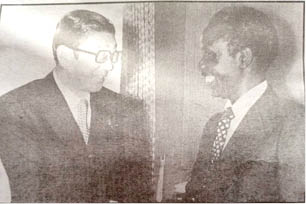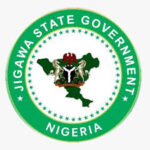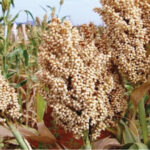‘Yalleman and the BDC business
Yalleman community is located 24 kilometers away from Hadejia Local Government Area of Jigawa State and 154 kilometers away from Kano State. The village lies just by the roadside along the popular Kano-Hadejia highway, much after Ringim Local Government Area. The community is divided into two; Yan leman-Hausawa and Yalleman Tijjani.
The story of Yalleman has strong connection with the BDC business, as it was the initiative of one of its sons, Cherno Baila Wan. The Fulani migrants from Futa Toro of Senegal are citizens of Nigeria. They earned citizenship after they fought against the British colonial invasion in July 1903 in Bormi. It was the fallout of that battle that made many of the migrants to settle in parts of Hadejia as well as Niger, Chad, Sudan and Madina in the Hejaz.
Their spirit of unity, brotherhood, religious tolerance and above all, commitment contributed to the development and spread of the forex business in the country and Africa at large.
The word Yanlleman was originally pronounced ‘Yalliman, meaning the children of the Imam (leader of prayer), before it was gradually changed to ‘Yan liman and it is now called, Yalleman. The town was originally put under the supervision of the then Chief Imam of Hadejia town, late Mallam Ibrahim.
Alhaji AbdulMalik Babamale: From northern football captain to venerable 90-year-old man
How communities, parents, banditry fuel street begging in Sokoto
It was predominantly occupied by two major ethnic groups – Fulani and Hausa. The Hausa were said to be the original occupants of the town before the Fulani joined them during the era of late Muhammad Mai-Shahada, the then Emir of Hadejia, who gave them the land to settle.
The people of Futa were warmly received by the Emir of Hadejia, the late Muhammad Mai-Shahada. Their leader was restricted by the British in Lokoja, after the battle of Bormi. Sheikh Muhammad Bashir remained in Lokoja, until he passed away in 1914. Sheikh Amadul-Madani succeeded him in 1914 and passed away in 1933 in Yan leman.
“How we got the name Yalleman. The then emir of Hadejia who gave us the place to settle was under the watch and guidance of the Chief Imam of Hadejia called in the local dialect, ‘Liman’ and that’s how the village became known as ‘Yalliman’, meaning; the children of Imam. Liman was the emir’s representative. We were then accommodated and settled. That is in 1904,” said a historian, Ahmadu Mahmoud Bah.
The beginning of forex trade
In the early 1930s, Alhaji Cherno Baila Wan, the father of famous Liman Dan Liman, who the late Mamman Shata sang about, was the first person who started the forex business popularly know as Bureau De Change, across the sub-Saharan Africa and Nigeria. He was among some Fulani migrants, who originated from Futa Toro in Senegal. It was gathered that they were migrating to Madina in the Hejaz, after the jihad of Sheikh Umar El Futi and the fall of his Islamic Caliphate headquartered in Segu in Mali in 1893. Cherno Baila Wan was a great grandson of Sheikh Umar Baila Wan, the commander of Sheikh Umar El Futi Jihad. His son, Liman Dan Liman is still alive and well over 80 years of age.
Cherno, written as ‘Thierno’ in French, meaning teacher, started the forex business in the early 30s, when he arrived in Lagos. He travelled far and wide all over the West and Central African region studying and appreciating the opportunities in the business, as he saw the utility in changing of currency for people who moved to trade beyond borders. It was his initiative, as he became be the key person changing money for the traders coming into and going out of Nigeria as well as non-traders, who traveled into and out of Nigeria, Weekend Trust gathered.
As a businessman who moved from one country to another trading, Cherno saw the opportunity to make the business much more seamless. He arrived Lagos, with his younger brother, Ibrahim in the early 1930s and were warmly received and initially accommodated by the late Usman Jannanke, the father of Alhaji Widi Jallo, at No 7, Kosoko Court at the Oba Kosoko Palace.
Saidu Habibu Ahmed Tal, also a member of the ‘Yalleman community told Weekend Trust how the forex business that has since become the source of livelihood for millions of people started as one man’s initiative.
He said, “Cherno was the great grandchild of Sheikh Umar Baila Wan, the commander of the jihad of Sheikh Umar Futi. In the whole of the sub-Saharan Africa, he was the one that started the forex business. At that time (in the 1930’s), his younger brother, Alhaji Ibrahim Wan, who was practically his contemporary, joined him in the business.
“He was trading at that time and moving around. He had settled briefly in Fort Lamy Chad, Central Africa, Kinshasa in Congo and Lome in Togo, among other places. He was very well known across the entire West and Central Africa. Till date, many still discuss him not only for his business acumen, but also for his generosity and benevolence.
“He married from some of the places he operated. Depending on how long he was going to be away, he moved with his family. After moving around for a while, he returned to Nigeria in the early 1960’s, but he still maintained his business points.
Later, he started shuttling between Lagos and Kano, being the economic hubs of Nigeria.
“In Togo, he had a lieutenant, (a Yoruba man called Saka) who also became very influential and rich. Same thing with other places. He then consolidated and later ventured into the textile business.”
Relationship with the Dantatas
As the exchange business expanded and gained recognition and acceptance, influential businessmen began to reckon with Alhaji Cherno, it was gathered.
The brother, being the second person to venture into the exchange business also became very rich, well-connected and influential.
Alhaji Cherno played a vital role in the business of the West African Pilgrims Agency (WAPA) in Kano from the late 1940s, when Mamuda Dantata invited him over to be providing foreign exchange for his business and pilgrims. Since then, WAPA in Fagge became the hub of currency exchange in the North. And it has remained so till date. Currency trade in WAPA is largely associated with its history as a stopping point for traders and travelers from the North and West Africa as well a starting point for pilgrims travelling to Saudi Arabia.
Alhaji Cherno became a very good friend and business associate of Alhaji Mamuda Dantata, Alhaji Sanusi Dantata and Alhaji Ahmadu Dantata as well as many other importers and exporters. He was well known among the major Maiduguri businessmen.
It was further gathered that because he had access to and knew how to network funds of various currencies, many influential Nigerians became his friends. Cherno Baila Wan passed away in 1981.
Alhaji Ibrahim Wan
Alhaji Ibrahim Baila Wan, who was virtually a contemporary of Alhaji Cherno, also become well known in the money exchange business and he was very rich. As at 1971, it was said that he had well over 4 million pounds in cash. Before the Gowon era, he was associating with the late Prime Minister, Abubakar Tafawa Balewa. He was very well connected to influential persons. Up till today, his son, Lamido, is in custody of his house at No.7 Kosoko Court in the Oba Kosoko Palace in Lagos.
The second generation entrants
Some other people went into the forex business later. People like Mamuda Gwari, who was also influential and rich, Habibu Fari and others.
Muhammadu (Mamman) Bambado arrived in Lagos after Usman Jannake, but he was into port related activities, going into vessels to buy things from the Captains as well as procure things they wanted. That business is formally known as Ship Chandelle.
Opposite of where the UTC was located by the sea up to UBA by Marina, to opposite Leventis, was where the port was located. Muhammadu Bambado was operating within the port then.
Seamen were then bringing goods and they needed cash. Because Bambado was there, he took advantage and began the trade in-between the ships and the vessels.
Habibu Fari ventured into the forex business before him. People like Habibu Baki, Baidi, Musa Oga from Niger, (the grandfather of former speaker Salisu Buhari) also ventured into the business. Musa Oga was from Dosso in Niger republic. He also became very rich and was very generous. He was a prince from Dosso. Weekend Trust learnt that he was a very influential money exchanger.
Our correspondent gathered that Alhaji Habibu dominated the forex business in most of the expatriate community. A historian said, he was very handsome and spoke Arabic. He was also said to have been very close to Chief Mandilas, (the owner of AIM Consultant, who was into pools betting business under the trade name, Maizambura.
The spread of Forex business and BDCs to Abuja
In the wake of the attempted coup d’etat in 1990, led by a military officer, Major Gideon Orkar against the then government of General Ibrahim Babangida, who later saw the return of seat of power to Abuja, as the nation’s capital, some currency merchants spread to Abuja, providing their services.
“The day the Orkar coup d’etat took place, people were surprised. Thankfully, the coup d’etat was crushed, if not things may have been different. Besides, the people of Yan leman are still in Lagos, up till today, but two things played out. Some of our people found themselves in Abuja due to the opening of a new market and movement of the seat of power. It was along that line that other people started going into the business.
“People from all over from Kano, Hadejia and other places came into the business, but Yan leman is the foundation, even though we are no longer the majority. Today, if you are looking for Bureau De Change operators, among one-hundred, you can hardly find five that are from Yan leman. They are now into the civil service and public sector jobs and other sectors. We now have lots of graduates that are even seeking employment.
“Many people are saying it, that the people of Yalleman should not leave BDC because it’s something they started. Up till today, our people are into the business and have transited over to other businesses. Some are even abroad in countries like Dubai, still doing it, but in Yan leman today, there are more of those who are not into it. We are not up to 10 per cent of Bureau De Change operators in the country now. Other tribes have learnt from us and are virtually dominating the sector.
“Everybody you see today in the business saw and learnt it from us. It’s of course the Chernos inherited family business, but they are no longer fully into it. Liman Dan Liman, the senior son of Alhaji Cherno, Seku Wan, Iro Abubakar and others are not into the business. However, within the family there are a few who are still engaged in the business.
Getting the license and formalisation
In the early 60, about 30 years after the introduction of the currency exchange business in the country, another influential figure in the business, Alhaji Ahmadu Yaro, saw the need to formalise it, courtesy of his connections and discernment.
“Alhaji Ahmadu Yaro was the first person to get license to operate Bureau De Change business in the early 1960s after independence. He was the first and only one that had the license to do foreign exchange business in the early 60s.
“He was very close to and indeed the best friend of late Head of State, General Murtala Muhammed. He felt that he needed his business to be formalised because there was a wrong perception about it. During the colonial times, the British saw the business as something of great utility value for the informal sector. But much later, after the civil war, it was perceived to be sabotaging the economy. That wrong perception stemmed from the fact that many thought, wrongly too, that it was a business dominated by foreigners. It was later that the utility value of the business became appreciated”, Saidu Tal said.
It was during the General Ibrahim Babangida regime that many people acquired license for the trade. Since then, the currency exchange has continued to flourish across the country.
BDC today
Currently, the number of BDCs stands at 5,690, according to the latest data from the Central Bank of Nigeria (CBN). BDC application fee today stands at N1 million while the license itself goes for N5 million. In Tier 2, the apex bank said operators will have to possess a minimum share capital of N500 million and maintain Mandatory Caution Deposit of N50 million.
BDC was licensed in 1989 to allow small users of exchange and to deepen the officially recognised foreign exchange. Exchange rates in the BDC are market-driven. The foreign exchange parallel market has been in existence since the exchange control era.

 Join Daily Trust WhatsApp Community For Quick Access To News and Happenings Around You.
Join Daily Trust WhatsApp Community For Quick Access To News and Happenings Around You.

